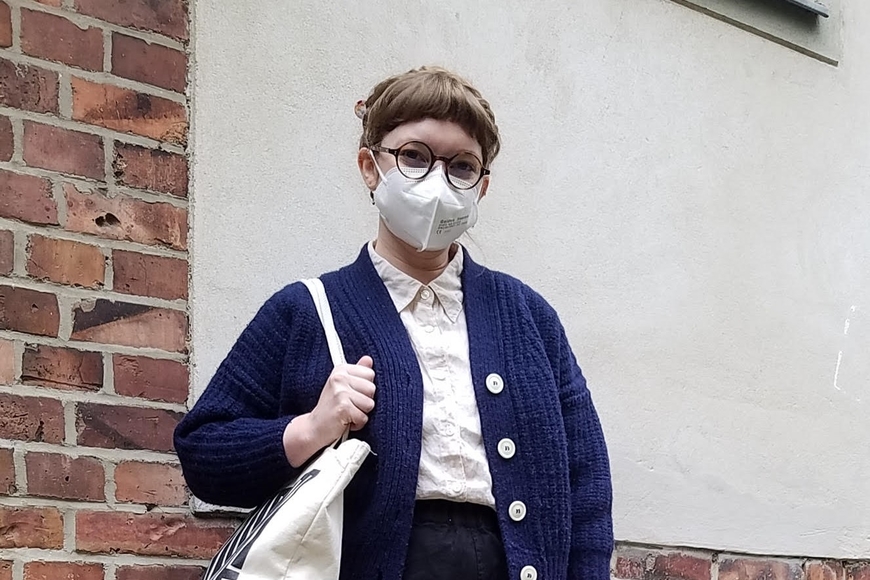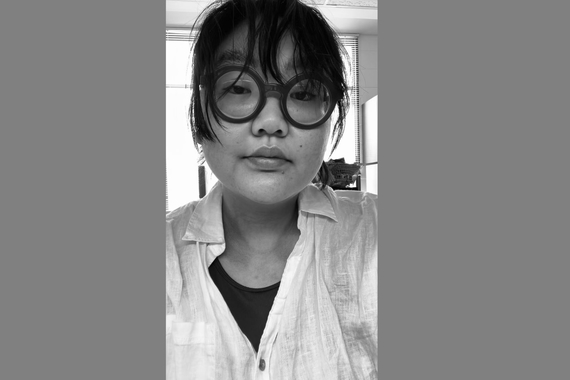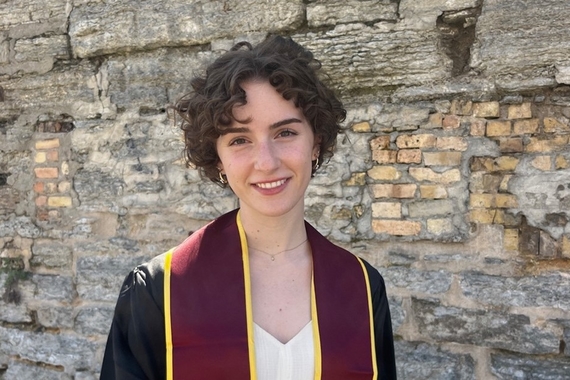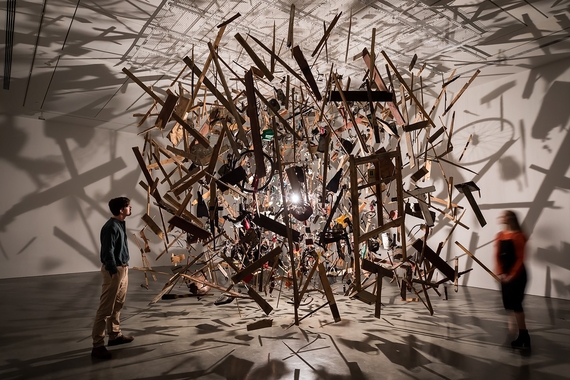Graduate Student Q&A: Olivia Comstock
Olivia Comstock (she/her/hers) recently completed her first year in the art history PhD program, with a specialization in American art. She is currently on a leave of absence while living in Berlin, Germany on a Fulbright research and study award. Her hometown is Boise, Idaho.
How did you become interested in art history?
In elementary and middle school, the charter school I went to had art as a subject every year, which included art history. Then in high school, I did ceramics and AP ceramics, so I knew I already had an interest in art. Despite this, I started my bachelor’s as a biochemistry major. During my second semester, I took an art history course as part of a general education requirement, and I was really excited about the material. When I was doing ceramics in high school, I always enjoyed the writing assignments and artists' statements more than actually making the art, so art history felt like the perfect combination of reading, writing, and art for me. There was only one art history professor at my university, and therefore no option to major or minor in art history, so I ended up majoring in philosophy instead, but I took all of the art history classes that I could!
If you received any scholarships or other notable financial support for your college education, what has that support meant to you?
I received generous scholarships in both my undergraduate and graduate education so far that have made a big difference for me. In my undergraduate degree, my scholarships from the honor’s college and for my performance in high school meant I didn’t have to take out student loans. Without student loan payments, I could afford to live and save after I graduated and pursue graduate education without worrying about adding to a growing pile of debt. For my first year of graduate school at UMN, I received the College of Liberal Arts Graduate Recruitment Fellowship and the Beverly & Richard Fink First-Year Fellowship Award. This meant I didn’t have to work as a teaching assistant my first year, and I could focus on adjusting to graduate school during the pandemic. Because I didn’t do a master’s degree or major in art history before starting the PhD program at UMN, having this year without teaching really helped me transition into graduate-level work and spend time broadening my foundational knowledge of the field. The extra funds in the first year also helped me feel financially secure in the moving costs for going to Germany for my Fulbright research and study award this past September.
What is one aspect of art history that has surprised you? What do you wish more people understood about your discipline?
There are a lot of jokes made about majoring in art history. Even Obama called out the art history major in 2014 when speaking about what post-secondary education would lead to higher-paying jobs (hint: it wasn’t art history). I wish people understood that art history is valuable and worth spending time on. Learning about art may not be saving the world, but I think part of human nature is our love of seeing and making beautiful and interesting things. As long as this is true, art history will matter.
One aspect that has always surprised me is how much depth every discipline and subfield has. There is so much information out there! Art history is such a global and historical discipline. There are experts in art from all over the world and every period spanning thousands of years, so there really is no end to the amount of information you can read and learn on art history.
What words of wisdom would you like to share with students who are pursuing interests similar to yours?
I don’t know if I have many words of wisdom, as I feel like I am still just starting out in this field and have a lot of questions about the future, but I would tell students to pursue what you are interested in even if it doesn’t feel like the most economical or smartest choice. Otherwise, college will just become a job-training program rather than a place to question what you know and really learn for the sake of learning. We will lose the value of learning about human history and ways of thinking.
What are you looking forward to? What's next on the horizon for your studies/work/life/adventure?
Right now I am in Berlin, Germany on a Fulbright research and study award. I just got here about a month ago, so I am still really looking forward to the unfolding of my time here and my project. I am working with the Museum FLUXUS+ to create workshops that use playful and interactive activities to teach visitors about the Fluxus group. Since I am at the beginning stages of this project, I am excited to see how it continues to develop! I am also really looking forward to visiting more museums in Berlin while I am here. It is so nice to get to see so much art in person!



